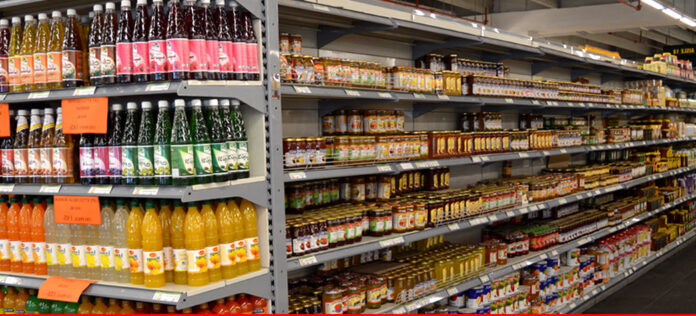—Businesses, consumers struggle to cope as inflation eats into incomes
KARACHI: The first year of the Pakistan Tehreek-e-Insaf (PTI) government has turned out to be a difficult one for consumers as the cost of living witnessed sustained increase over the period.
High food prices, increasing petroleum, CNG and LPG rates, rupee depreciation against the dollar, rise in utility bills and changes in duties and taxes were the main drivers fueling a higher cost of living for the said period. One of the major reasons behind the push in costs was the exchange rate parity, as the dollar has surged to Rs158, from Rs123 in August 2018.
Meanwhile, the consumer price index in July grew by 10.3 per cent year-on-year, versus an increase of 8.9pc in June and 5.8pc in July last year. Petrol and diesel, which were Rs95.24 and Rs112.94 per litre respectively, are now available at Rs117.83 and Rs132.47 per litre.
When the government came into power, CNG was priced at Rs81.70 against the current rate of Rs123 per kg owing to increase in gas prices. For most people, inflation is the most visible marker of govt’s first year in power.
The price of chapati and naan went up by Rs2 to Rs8 and Rs12 respectively, while that of sheermal and taftan to Rs35-40, from Rs 30-32. Because of rising flour prices and other items, bread makers had raised prices twice – first ahead of Ramzan by 8.1pc and then by 9pc before Eidul Azha.
Sugar price jumped to Rs75-78 per kg depending on the area, from Rs65 per kg in last August. However, the rate of the commodity this January was around Rs55-60 per kg. Similarly, the cost of steel bars swelled up to Rs120,000 per tonne from Rs103,000 in August 2018.
Good quality ghee per kilo and one-litre cooking oil prices went up to Rs200-220 and 230, from Rs180-200 and Rs180-200, respectively.
The prevailing rates of gram pulse, moong, masur and arhar are Rs140-160, Rs160-170, Rs130 and Rs180 as compared to Rs95, Rs90, Rs80-90 and Rs130 per kg respectively. Various varieties of rice became costlier by Rs10 per kg.
In the absence of any official rate hike, milk sellers on their own raised loose milk price to Rs100-120 per litre, from Rs94, followed by yogurt, which went up to Rs150-160 per kg against Rs140 per kg previously.
According to Mohammad Sohail of Topline Securities, gas prices for feed stock climbed to Rs300 per mmBtu (excluding Gas Infrastructure Development Cess of Rs300 per mmBtu), from Rs123 per mmBtu. In fuel (normal gas), gas rate were raised to Rs1,021 from Rs600 per mmBtu (excluding GIDC of Rs150-200 per mmBtu).
He said that a urea bag used to sell at Rs1,650 as compared to the current rate of Rs1,850, while DAP costs Rs3,600 against Rs3,382. According to him, power rates have gone slightly up to Rs14 per kWh, from Rs12 per kWh.
“Rising energy prices is due to the reduction in government subsidy and its attempts to control the sector’s circular debt, in addition to meeting the International Monetary Fund (IMF) conditions,” Sohail said, adding that as per the IMF document released last month, power tariff in Pakistan would further go up in September.
Veil meat with and without bones are now sold at Rs540-580 and Rs680-700 per kg as compared to Rs480-520 and Rs600-640 per kg while mutton price now hovers around Rs1,100-1,200 per kg depending on the area as compared to Rs950-1,000 per kg previously.
Around one kg pouch of Nido and EveryDay tea whitener are now sold at Rs980 and Rs930 respectively, up from Rs780 and Rs765 a year back whereas 1kg bag of tea is worth Rs910, versus Rs830 per kg.
All of this has hit the lowest strata the hardest as they now struggle to meet the burgeoning expenses with many limiting their purchases to necessities only, instead of buying in bulk.
Giving an example, a residential area shop owner in Karachi’s FB Area Ali Tariq said that people now increasingly buy 125 or 250 grams of pulses to meet the ready demand instead of half kg or one kg which they used to buy when prices were lower. The same trend also persists in sugar, rice, flour, etc.
He said some consumers instead of asking per kg rate take pulses for just Rs20-40 now.
Residential area shopkeepers also maintain a credit register of consumers and according Tariq, the number of shoppers seeking credit has grown in the past one year and the situation is so bad that many ask to write menial purchases of Rs120-200 in their account.
Giving an example, Ali said if he had list of 10 customers last year but now the numbers are 13-14. Customers availing credit purchases pay the amount either at the end of month or after one to two weeks while in many cases “we have to remind the customers to clear their dues to meet our shops’ running expenses.”
Karachi Retail Grocers Group (KRGG) General Secretary Farid Qureshi said the practice of availing goods on credit is mainly common in shops located in residential areas where shopkeepers know the whereabouts of buyers.
According to shopkeepers, consumers still want to buy items but higher prices have rendered their affordability limited. Besides, the erosion in rupee value has also pushed up the cost of imported raw materials used in manufacturing local products.



































